About
Background
The Centre for Socially Engaged Practice Based Research (SEPR) – formerly the Centre for Transcultural Research and Media Practice (CTMP, 2005-2017) – situated in the School of Media, constitutes a dynamic socially engaged creative practice research environment within the Faculty of Arts and Humanities.
SEPR foregrounds socially engaged art, media and architectural/design practice as a transdisciplinary research orientation across diverse communities of place and interest, together with participatory, collaborative and ethnographic methods in the production, theorisation and dissemination of new knowledge within and outside the academy.
The Forum on Migration and Communication (FOMACS), which creates and curates as Counterpoints Arts in London (counterpointsarts.org.uk), was a €1.3m Atlantic Philanthropies funded CTMP-led cross-sectoral production-based creative hub producing film, photography, digital storytelling, radio and animation on the topic of immigration into Ireland, with the aim of not only reaching but engaging diverse audiences. FOMACS worked collaboratively with numerous partners including among others: migration NGOs, filmmakers, digital designers, photographers, journalists, cultural institutes, arts organizations, curators, planners, theatre practitioners, writers, academics, teachers and youth groups.
In its evolving constitution as a transdisciplinary research interface between interdisciplinary socially engaged creative practice and public engagement, SEPR’s core goals and objectives are as follows:
- to promote the value and application of doctoral and postdoctoral level practice-based research across diverse sites, communities and contemporary societal concerns, utilising new and established digital media platforms, disseminated across the medium specificities of film/video, photography, installation, exhibition and written peer reviewed publications.
- to generate and share new knowledge with other scholars/practitioners, national and international academic institutions, arts/cultural organisations, NGOs, local community-based organisations and governmental agencies.
Supervision of doctoral students is conducted by a combination of SEPR academic staff members with specialist expertise, located across Schools and Faculties within TU Dublin. In exceptional circumstances and depending on topic, SEPR encourages the inclusion of external associate supervisors across universities both within and outside Ireland.
Cross-Faculty Staff
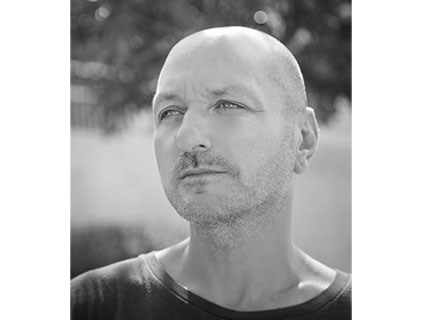
|
Dr Alan Grossman is Director of the Centre for Socially Engaged Practice-Based Research in the School of Media, with extensive experience supervising written and practice-based doctorates. He represented CTMP on the Centre-led FOMACS public media project (2007-2011), producing film, photographic, digital storytelling, radio, animation and print stories on the topic of immigration in Ireland. He was the recipient of a two-year Government of Ireland Postdoctoral Fellowship in the Humanities and Social Sciences (2001-3) – the first award of its kind for non-fiction practice-based research at the postdoctoral level in Ireland. He has a longstanding documentary production engagement with the cultural politics of identity, migration and diasporic formations across infra and transnational contexts; from the perspective of the minority Welsh-language resistance movement in Wales, to Kurdish refugee music in Scotland in the form of a short performative documentary film Silent Song (2000, UK), to his co-directed ethnographic film projects Here To Stay (2006, Ireland) and Promise and Unrest (2010, Philippines), which address questions of migrant political agency and long-distance motherhood. He has published in numerous refereed journals including Space and Culture, Journal of Ethnic and Migration Studies and Crossings: Journal of Migration and Culture, while participating in international conferences as a keynote across the fields of visual, media and cultural studies, documentary film and visual anthropology. He co-edited Projecting Migration: Transcultural Documentary Practice (2008, Wallflower/Columbia University Press) – a combined book/DVD engaged with questions of mobility and displacement through the analytical prism of creative practice. He has co-edited special journal issues on the cultural politics of representation in the Journal of Media Practice (2008), together with questions of contemporary ethnographic practice in the Irish Journal of Anthropology (2013). He was external examiner (2009-12) of the MA in Radio and Television, Centre for Media Studies, National University of Ireland, Maynooth. His publications include a co-authored chapter titled 'Socially Engaged Practice: A Reflection on Values, Theory and Writing’ in Bell, D. (ed.) Mind the Gap: Working Papers on Practice-Based Doctoral Research in the Creative Arts and Media (2016, Distiller's Press), and an Irish Arts Council commissioned essay ‘Choreographing Her(selfie): Nothing Happens’ (2017) for ‘Becoming Christine’ exhibition, curated by artist Amanda Dunsmore. He is co-editor of a forthcoming publication titled Socially Engaged Art Across Ireland: Contested Narratives, Places and Futures (2024, Cork University Press). Email: alan.grossman@tudublin.ie |
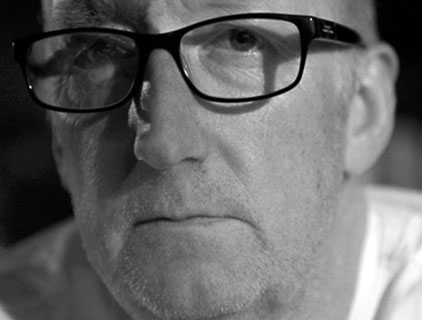
|
Dr Anthony Haughey is an artist and photography lecturer, supervising practice-based doctorates. He was Senior Research Fellow (2005-8) at the Interface Centre for Research in Art, Technologies and Design, Belfast School of Art, where he completed a PhD by Prior Publication in 2009. His artworks and research have been widely exhibited and published and collected nationally and internationally. Recent exhibitions include: the film trilogy Assemble, a public artwork commissioned by Fingal County Council and made in collaboration with the Global Migration Collective, installed in RCC Letterkenny and screened in Ulster Museum for Belfast Film Festival; Open House, Whitworth Gallery Manchester; Picturing People, National Gallery of Ireland; A Dress for Akunma, National Museum of Ireland; Citizen Nowhere / Citizen Somewhere: The Imagined Nation, Crawford Gallery, Cork; Go Down Moses, curated by Teju Cole, Museum of Contemporary Photography, Chicago, and 21st Century Ireland in 21 Artworks, curated by Cristín Leach, Glebe Gallery, Donegal. His work was featured in Gallery of ‘Photography Ireland’s Reframing the Border’ programme, an installation, Field Notes From the Border and a collaborative public artwork with the late Seamus Deane installed on a 48 sheet billboard in Derry. He is an editorial board member of the Routledge Journal, Photographies and chairperson of Fire Station Artist Studios. He recently completed an artist residency at Artlink, Fort Dunree where he produced Anthem, a collaborative art intervention to commemorate the 1921 Anglo-Irish Treaty signing. He is currently Decade of Centenaries artist-in-residence in the National Museum of Ireland. Recent and forthcoming publications include: ‘Imaging the Unimaginable: Returning to the Scene of a Crime’, Život Umjetnosti art journal, Zagreb; ‘A Landscape of Crisis: Photographing Post Celtic Tiger Ghost Estates’, Canadian Journal of Irish Studies (2017); ‘Imagining Irish Suburbia’ (Palgrave 2017); and ‘Photography and The Troubles in Northern Ireland; A Short History’, Handbook on the Northern Irish Conflict and Peace Process (forthcoming, Routledge, 2023). He is co-editor of a forthcoming book titled Socially Engaged Art in Ireland: Contested Narratives, Places and Futures (2024, Cork University Press). Email: anthony.haughey@tudublin.ie |
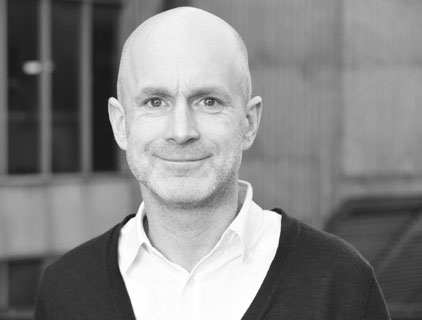
|
Dr Brian Ward is a Lecturer in the Dublin School of Architecture. Trained as an architect, he worked for dePaor Architects and Dominic Stevens Architects. He contributes regularly to publications on modern and contemporary architecture and town planning in Ireland. His expertise is planning and housing in Dublin during the early decades of the twentieth century, with a broader research interest in analysing architectural design skills through their social and cultural contexts. During 2019, he co-curated with Sarah Sheridan an exhibition and series of discursive events on Marion Mahony Griffin for the Irish Architecture Foundation. In 2020 he published Irish Housing Design 1950-1980: Out of the Ordinary with Gary A. Boyd and Michael Pike. In 2022, he co-curated with Gary A. Boyd, The Architecture of Creative Learning, for the Irish pavilion in the Dubai Expo. Email: brian.ward@tudublin.ie |

|
Dr Colm O’Kane is a designer, engineer and Senior Lecturer at TU Dublin’s School of Mechanical and Design Engineering. He is Chair of the University’s interdisciplinary Product Design programme and was appointed Teaching Fellow in 2013, for work on the holistic development of curricula in Higher Education. He was a member of the team which developed the Curriculum Framework for TU Dublin, Ireland’s first Technological University. His primary areas of research interest and professional practice are innovation in products and systems, human-centred design and bioengineering. His engineering and design practice has spanned a number of industries from automotive to energy systems, medical devices and sporting goods. He has supervised TU Dublin students to success in national and international competitions on over thirty occasions and was awarded the Enterprise Ireland ‘Academic Excellence’ award in 2019. He also serves as Director of the Bolton Trust, a charitable organisation which promotes and facilitates Innovation, Enterprise and New Product Development within the Dublin region. He completed his PhD at University College Dublin in 2012 in the area of bioengineering. In the course of this work, he was an ICUF Scholar at the University of British Columbia, Vancouver, Canada.He is currently supervising PhD candidates in the area of STEM education (as part of the EU funded SellSTEM project), design cultures and design identity. Recent presentations and publications include Towards a Truly Interdisciplinary Approach to Product Design Education (‘International Conference on Engineering and Product Design Education’, London, UK. 2018); Perspectives on Designing for a Sustainable Future; Products for the Developed and Developing Worlds (proceedings of the 20th International Conference on Engineering and Product Design Education, Dyson School of Engineering, Imperial College. 2018), and ‘Foundations and Scaffolding: Exploring Literature and Practice to Build a New Curriculum Framework for TU Dublin’, Irish Journal of Academic Practice, 2021). Email: colm.okane@tudublin.ie |
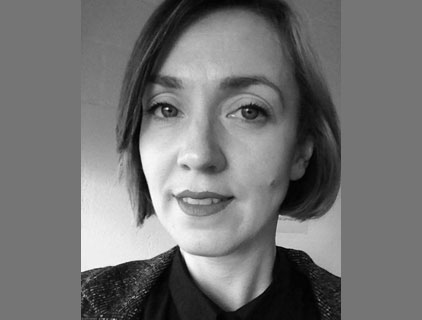
|
Dr Katherine Nolan is an artist, curator and lecturer in creative digital media. As an artist she works primarily in live and lens-based performance; her practice investigates gender and embodiment across live and digital spaces. She has exhibited internationally in Europe, America and Asia. Recent solo exhibitions include Fluid Flesh (2021) and The Mistress of the Mantle (2017) at MART Dublin, group shows at LACE Los Angeles (2018) and Supermarket Art Fair Stockholm (2016). Performances include the live on-line solo performance Domestic Flesh (2021) for The Golden Thread Gallery, Belfast and a twelve-hour duration as part of Future Histories at Kilmainham Goal (The Arts Council's 1916 Programme). She regularly curates with MART, Livestock Performance Art Platform, and previously Dublin Live Art Festival. Recent projects include HOME made HOME at MART (2020); Care. Complicity. Critique at the Centre for Irish Contemporary Art Los Angeles (2019); and Livestock’s bi-monthly experimental performance platform. Her research practice occurs at the interstices of lens-based media, performance and digital culture. Recent papers include Fear of Missing Out: Performance Art through the Lens of Participatory Digital Culture (International Journal of Performance Arts & Digital Media, 2021); Life on Pause: Entanglements of the Maternal and The Mortal in a Global Pandemic (chapter in the edited volume Performance in a Pandemic, 2021); and Reading Queer Irish Performance across Live and Digital Practices (Interfaces Journal, 2022). She has been Co-Investigator on the IRC/AHRC funded research project Intersections: Feminism, Technology & Digital Humanities Network, with colleagues in Cambridge, Maynooth and Sussex Universities. She is currently Co-Investigator on the Full Stack Feminism in Digital Humanities project (AHRC/IRC funded). She teaches design, lens-based media and critical and contextual studies. Her expertise includes practice-based research methodologies, gender, embodiment, performance, digital and lens-based media cultures. Email: Katherine.Nolan@tudublin.ie |
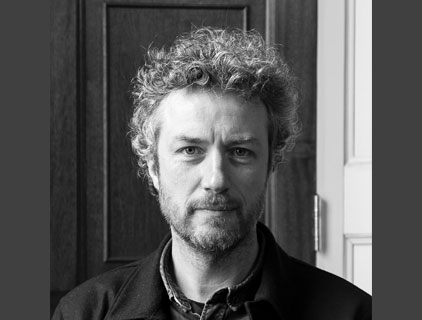
|
Dr Steve Larkin is a Lecturer in the Dublin School of Architecture, a practicing architect, educator and musician. He was awarded a PhD, for his research, ‘Interiorities in Oral Cultural Landscapes’, under the supervision of Richard Blythe and Jo Van Den Berghe, with special assistance from Leon van Schaik. He was formerly a lecturer in architecture at Queens University Belfast and was an EU Marie Curie ITN ADAPT-r Research Fellow at RMIT Europe 2014-2015. He became a member of the Royal Institute of Architects of Ireland in 2005, and established Steve Larkin Architects in 2007. He is a sitting RIAI Council Board Member since 2022. The practice, exhibited and published worldwide, has been the recipient of multiple national and international awards and commendations including RIAI Best Emerging Practice, RIAI Awards, AAI Awards and AR Commendations. His architectural practice across the Irish cultural landscape engages with the tangible and intangible character of context with the aim of contributing meaningful architectural objects into contextual space; objects that integrate and differentiate in perceived compositional space. Research outputs include buildings, exhibitions, symposiums, conferences and publications. Recent outputs include: Recovering a Rathcroghan Landscape and Identity (2021); Open House (2020); House at Slyguff (2020, AAI Award 2020, RIAI Highly Commended); House in Kimmage (2020, RIAI Highly Commended); Stratha Eagsula / Alternative Histories (2020), Irish Architectural Archive; contributor to 100 Days (2020), Architectural Foundation London; commissioned exhibitor, Freespace, Venice Architecture Biennale (2018); and Co-curator of Irish National Pavilion, London International Design Festival (2015). He is a guest critic in a number of universities in Ireland and the UK. |
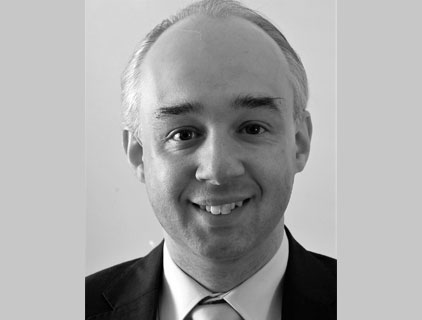
|
Dr Kevin Hora, MRPII, is Assistant Head of the School of Media pro tem, and programme Chair of the MA in Public Relations and MA in Public Affairs and Political Communication. A member of the Public Relations Institute of Ireland, he has served on the adjudication panel of the Public Relations Consultants Association national awards for excellence since 2018. He is a former ex officio member of the board of Dublin Chamber of Commerce and director of elections for a political party in a Dublin City Council ward. He is a peer reviewer for Routledge, Irish Communications Review and Humanities and Social Sciences Communication. He has published two books: Propaganda and Nation Building. Selling the Irish Free State (Routledge, 2017) based on his doctoral research, and Quick Win Public Relations (Oak Tree Press, 2014), an undergraduate handbook and primer. Book chapters include: ‘A Critical Discourse Analysis of Jonathan Swift’s Drapier’s Letters: Public Relations and Nationalism in Ireland, 1724-1725’, in Public Relations, Society and the Generative Power of History (Somerville et al., 2019, Routledge); ‘Marketing the Transatlantic Emigrant Crossing: The Influence of American Shipping Firms on the Irish Market’ in America in Ireland: Culture and Society 1841-1925 (Walsh and Wallace (eds), forthcoming, Cambridge UP); and co-authored with Martina Byrne, ‘The Velvet Ghetto Then and Now: Presenting the Socio-Historical Evolution of Women’s Experiences in Irish Public Relations Through Personal Storytelling’, in Women’s Work in PR (Bridges and Williams (eds), forthcoming, Emerald Insight). His research interests include contemporary political communication, public relations theory and practice, and the history of public relations and propaganda. Current doctoral supervision includes a research PhD on Ghanaian diplomacy and public relations, and a practice-based PhD on Irish historical documentary film-making, with a focus on the Northern Irish Troubles. |
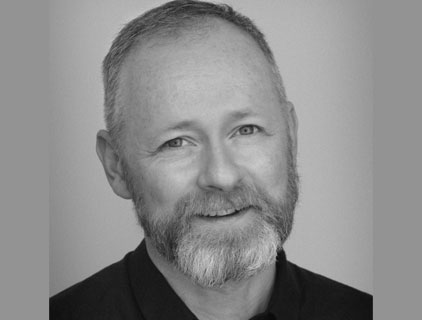
|
Kevin Donovan is a Senior Lecturer in the Dublin School of Architecture, where he chairs the RIAI-accredited M Arch programmes. He recently completed a PhD at UCD Architecture on an Actor-network reading of the workshop practices of Jean Prouvé at the Maison du Peuple (Clichy). This work was supported by a UCD Centennial Scholarship and the Liam Swords fellowship and has been disseminated in part at the Close Encounters exhibition at the Venice Architecture Biennale, 2018 (show co-authored with Ryan Kennihan Architects). Recent publications include chapters in Irish Housing Design 1950—1980: Out of the Ordinary (Routledge, 2020); Food and Architecture: At the Table (Bloomsbury, 2017) and Industries of Architecture (Routledge, 2016). Recent conference papers include ‘Objeu and the Maison du Peuple’, for the Society of Modernist Studies conference, Paris (Sorbonne), 2017. His research interests include the social construction of technology as it relates to the built environment and architecture practice, rurality and architecture and literature and architecture. He has also worked for several award-winning Irish architecture practices. He is currently supervising MPhil and PhD by Prior Publication projects in the areas of critically reflective practice in architecture and housing. |
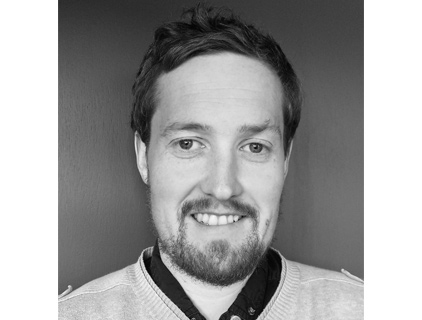
|
Dr Eoin McGillicuddy is a Lecturer in the School of Chemical and Pharmaceutical Sciences, TU Dublin where his teaching focuses on physical and environmental chemistry. His research focuses primarily on environmental chemistry, conducting research in atmospheric chemistry, particularly atmospheric aerosols and aerobiology, novel pollutants and nanoparticulate pollution in the aquatic environment. Eoin has developed an expertise in a wide range of environmental analytical techniques during his research. He obtained his BSc Hons in Chemistry (2009) and was awarded a PhD (2015) in Atmospheric Chemistry from the Department of Chemistry, University College Cork. Following the completion of his PhD, he has conducted research in University College Cork, National University of Ireland, Galway and TU Dublin. |
